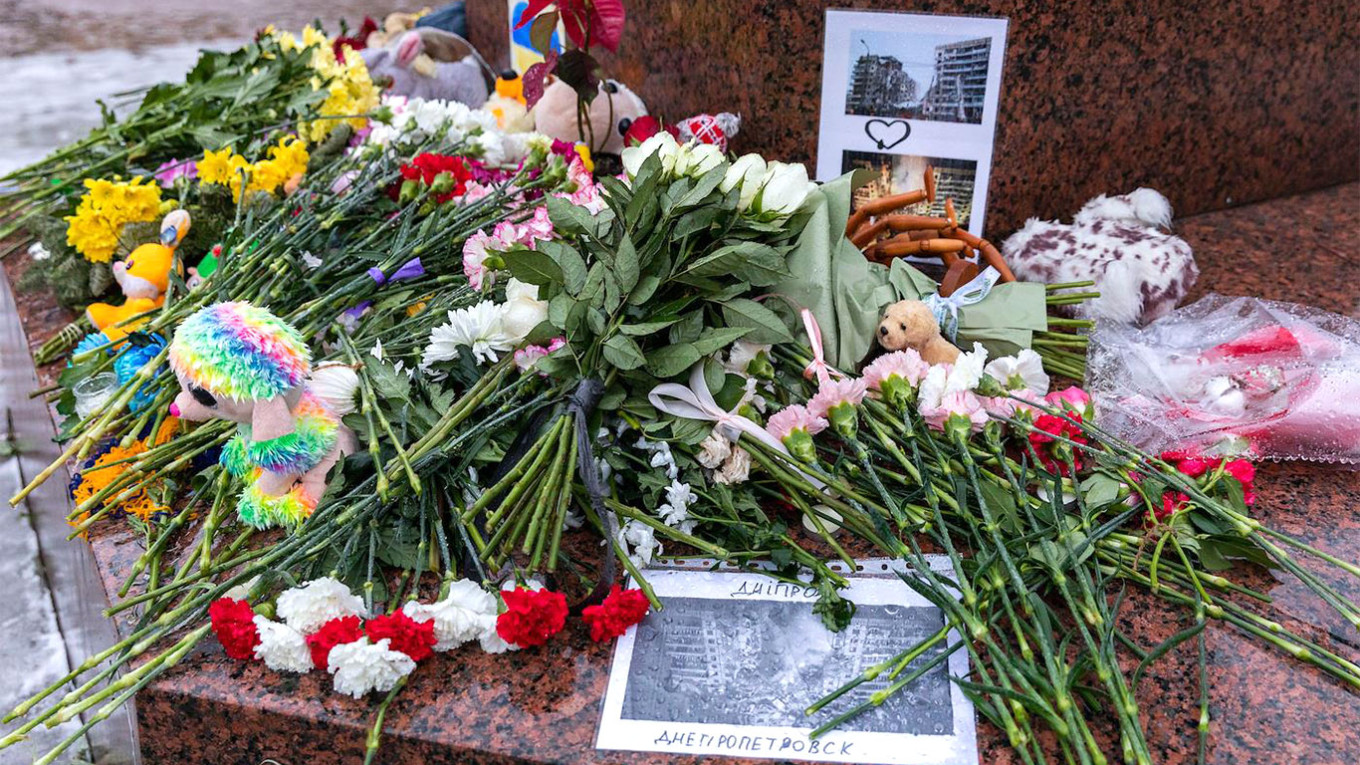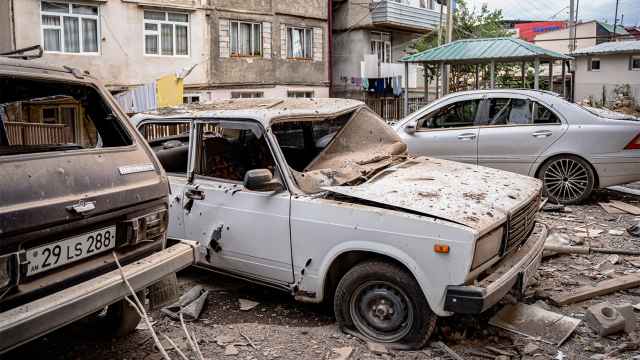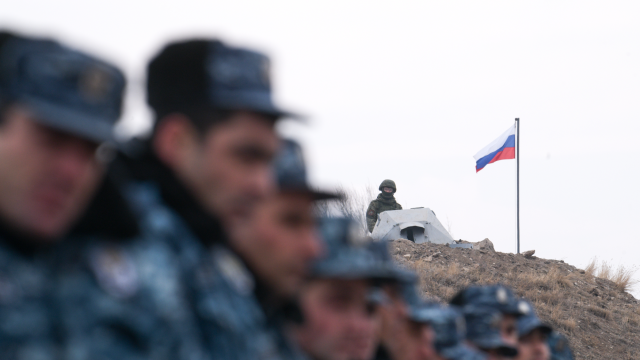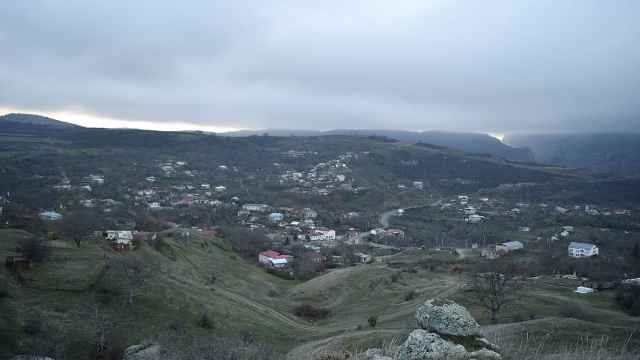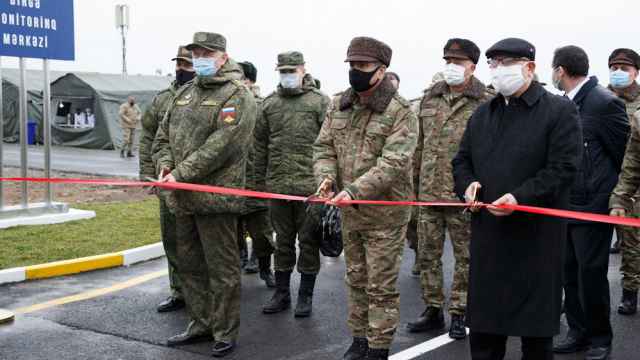In every city in Russia and Ukraine there are monuments to past wars and the millions who were sacrificed to the ambitions of leaders who chose to realize their objectives with guns, bombs, and bayonets. With brutal battles raging now in Russian President Vladimir Putin’s meaningless war against Ukraine, many of those monuments in Russian towns and cities have borne silent witness to opposition to the war and its attendant atrocities. In a country where open defiance of the government has become dangerous, people protest with flowers placed stealthily at the feet of Taras Shevchenko or Nikolai Gogol. The so-called “flower protests” are testimony that there exists, and has always existed, another Russia in opposition to official Russia.
I am a historian of Russia, the Soviet Union, and most particularly of the non-Russian peoples of those imperial states. Born in the United States, the descendant of Armenian immigrants from the tsarist and Ottoman empires, I have spent six decades as a scholar teaching and writing about the fraught past of the rulers and colonized subjects of Moscow, St. Petersburg, Istanbul and Ankara. Researching and writing within the standards of good scholarship, I have lived and worked in Armenia, Georgia, Russia and Turkey and consistently sought to demonstrate to whomever listened to my lectures or read my writing the complexities and contradictions of history.
Without attempting to justify or rationalize the horrific repression repeatedly deployed by tsars, sultans, communists, and successive authoritarians such as Putin or Recep Tayyip Erdogan, I have noted the aspirations of ordinary people for greater freedom, well-being and security. In these countries, despite the dangers of openly protesting, people have repeatedly taken to the streets to demand their rights — in 1905, 1917 and 1989-1991 in Russia, 1908 in the Ottoman lands and repeatedly in the Turkish Republic — only to be beaten down by political elites dedicated to their narrow, self-serving interests. History has not been kind to those living in those empires and their successor states.
As a person on the political Left who is opposed to essentialist readings of Russian and Turkish history – the barbaric Russian, the terrible Turk or the godless Communist – I have taken my share of criticism when trying to nuance the explanations of why these states have committed unpardonable crimes, like Stalin’s Great Terror, the Holodomor in Ukraine or the Ottoman genocide of the Armenians. Trying to explain such horrors, not as resulting from the permanent character of a people, but as phenomena growing out of particular historical conjunctions and contexts, has brought down the wrath of critics.
In Soviet times, after publishing my first book, “The Baku Commune,” a history of the revolution of 1917-1918 in the oil capital of the Russian Empire, I was accused of being a “bourgeois falsifier of the history of Azerbaijan.” Georgians said that, as an Armenian, I was “incompetent” to write “The Making of the Georgian Nation,” another book of mine. And my compatriot Armenians were suspicious when I tried to explain that the Young Turks carried out the mass deportation and murder of hundreds of thousands of Armenians and Assyrians during World War I as the culmination of a long process of demonization.
More recently, one of my latest books, “Stalin: Passage to Revolution,” a biography of the young Bolshevik from his birth to coming to power in October 1917, was criticized by historians who took issue with my attempt to analyze the many sides of this enigmatic figure. One reviewer even said it was like “reading a sympathetic biography of Hitler.”
The bruises to an historian’s ego are easily healed. Far more harmful is the fallout from the war in Ukraine, which has heightened the familiar tropes demonizing Russians and rendered impossible multifaceted analysis of the motives and actions of the Russian government and population.
There is, in my view, no excuse for Putin’s invasion of Russia and the terroristic war being carried out against people defending their homeland. He must himself by now understand what a senseless blunder it was to attempt to decapitate the Ukrainian government and subdue a nation of more than 40 million people. But in trying to understand why such a colossal war crime could be contemplated by Russia's leaders, it's unnecessary to immediately jump to concepts such as fascism or Russia’s apparently ingrained tendency to expand and subdue its neighbors.
Putin’s expressed fantasies about Nazis ruling in Kyiv, the illegitimacy of the Ukrainian state and the absence of a Ukrainian nation yearning to be free of Russia could have been part of the emotional environment in which he made his disastrous decision to invade. But it is more likely, in my view, that these delusions are primarily propaganda directed at the public to justify the unjustifiable; tropes that resonate in popular understandings of Russia’s past vulnerabilities and the country’s great triumph over fascism.
Amid the daily destruction of Ukrainian cities, it is almost impossible to put together a sober analysis of how Putin and many Russians came to feel that they were in an existential struggle with an aggressive West determined to reduce their country to a minor player on the world stage.
It is difficult nowadays to remember the reiterated warnings by successive Russian governments beginning with Yeltsin (and U.S. officials, including the current head of the CIA) that NATO expansion was a dangerous red line. Pundits and journalists consistently misread how the Kremlin understood its national security interests. For example, it’s commonly stated that Russia invaded Georgia in 2008 without noting it was the Georgian president that began the war by shelling South Ossetia (Putin at the time was in Beijing watching the Olympics). This narrative feeds into the popular view that Russia is and has always been an expansive, imperialist state, even though a look at the map would show that Russia/U.S.S.R. has shrunk on two occasions in the 20th century — after World War I and in 1991 after the disintegration of the Soviet Union.
For Putin, who dreams of regional hegemony over the former Soviet space, Washington’s insistence on unencumbered global hegemony is the unacceptable threat that his war in Ukraine was designed to thwart. The problem is that Moscow, like Washington, has been unable to recognize fully that the post-World War II international security system cannot be changed or maintained on the battlefields of Ukraine. Both the U.S. and Russia are guilty of what has been labeled “imperial overreach,” trying to dominate other countries or regions beyond their capacity to do so.
Someday, somehow the war in Ukraine will end — not by the defeat of one or another of the combatants but by hard negotiations and compromise. Perhaps then we can get back to more temperate, thoughtful, less heated descriptions and analyses of those states and leaders that stand opposed to our preferred views of the world.
If we demonize and essentialize our opponents, we limit fatally the possible choices for reconstructing the rules of the international game. How is it possible to negotiate with an inherently fascist state or an inevitably imperialist one? The costs of the old thinking are truly unthinkable.
A Message from The Moscow Times:
Dear readers,
We are facing unprecedented challenges. Russia's Prosecutor General's Office has designated The Moscow Times as an "undesirable" organization, criminalizing our work and putting our staff at risk of prosecution. This follows our earlier unjust labeling as a "foreign agent."
These actions are direct attempts to silence independent journalism in Russia. The authorities claim our work "discredits the decisions of the Russian leadership." We see things differently: we strive to provide accurate, unbiased reporting on Russia.
We, the journalists of The Moscow Times, refuse to be silenced. But to continue our work, we need your help.
Your support, no matter how small, makes a world of difference. If you can, please support us monthly starting from just $2. It's quick to set up, and every contribution makes a significant impact.
By supporting The Moscow Times, you're defending open, independent journalism in the face of repression. Thank you for standing with us.
Remind me later.



